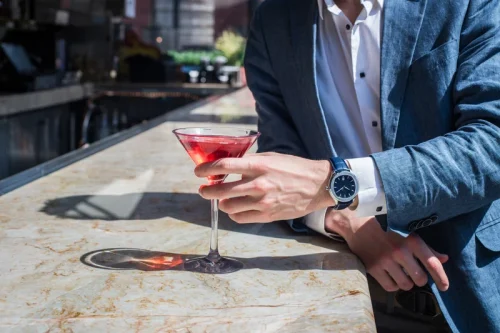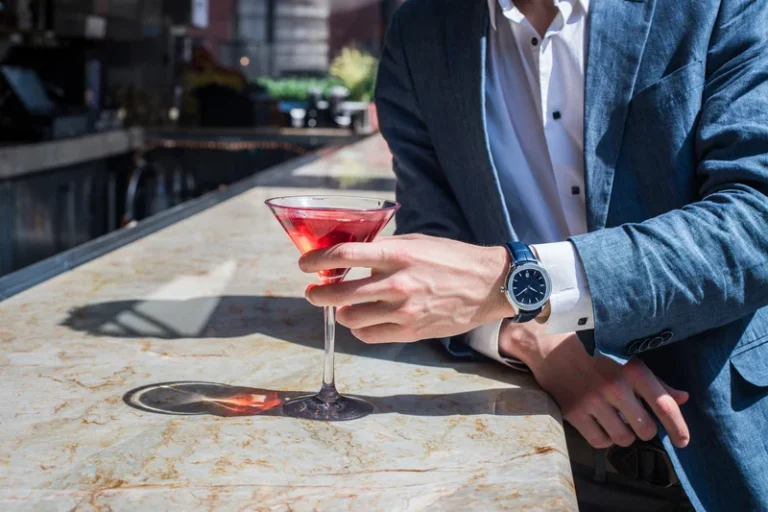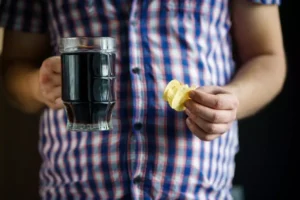
Something that would normally be ignored will now trigger paranoia and panic. Spending time in nature can promote feelings of calm and well-being. Stretch tall and imagine yourself firmly rooted to the ground like a tree. Before we proceed, let’s establish what panic attacks even are and how they are related to anxiety. It takes courage to face these challenges, and you are stronger than you think. Taking small steps towards understanding and managing alcohol-induced anxiety can lead to big changes in your overall well-being.

Alcohol Abuse
Elevated cortisol levels can lead to feelings of anxiety or restlessness. If you experience sudden, intense anxiety and fear, it might be the symptoms of a panic attack.13 Other symptoms may include a racing heartbeat, or feeling faint, dizzy, lightheaded, or sick. It’s a natural human response and usually passes Sobriety once the situation is over – for example around a job interview.
Why Alcohol Use May Increase Risk Of Panic Attack
But there’s a definite link between alcohol consumption and the onset of panic attacks. This connection involves complex interactions between alcohol, our brain chemistry, and our individual sensitivities. If you are concerned that you are experiencing panic attacks as a result of your alcohol consumption, it is recommended that you cut down or completely stop drinking. When you experience alcohol-induced panic attacks, this cycle can become even more frightening and potentially result in a long-term panic disorder. It is not recommended to use alcohol as a coping mechanism to avoid panic attacks and feelings of anxiety, as this can make the initial problem worse in the long term.
Panic Attack Symptoms
- This means you may experience withdrawal symptoms if you stop abruptly.
- In order to truly take control of your panic attacks, you should make efforts to treat the underlying anxiety that’s causing them in the first place.
- Studies have found that heavy drinkers have increased cortisol levels due to alcohol’s effects on the body.
- If needed, your psychiatrist can also refer you to a Talkiatry therapist.
- If you’re feeling overwhelmed, step away to a quiet place where you can relax.
One found 35.8% of alcohol-dependent men and 60.7% of women reported anxiety symptoms. There are various reasons to drink, from enhancing a meal to celebrating special occasions. A 2023 review suggests that there’s a alcohol induced panic attack significant blood pressure benefit to reducing alcohol use or avoiding it altogether. However, more research is needed to better understand the effect size in different populations.
- When you aren’t drinking, the lack of natural inhibitors can contribute to panic attacks and seizures.
- This happens because your brain has become used to the presence of alcohol.
- Psychotherapy and mindfulness meditation can help you deal with anxiety.
- Anxiety, especially generalized anxiety, and alcohol have a complicated connection….
Alcohol Lowers Blood Sugar

Drinking alcohol causes a number of immediate effects in your body – your heart rate may increase, your blood sugar drops and you may eventually become dehydrated. If you are sensitive to the effects of alcohol, these uncomfortable sensations can trigger a panic attack. Studies indicate that feelings of anxiety increase the day following heavy drinking. Alcohol has a profound effect on the brain, which could explain these results. A comprehensive guide to recognizing the signs and symptoms of porn addiction. Learn about the impact of excessive porn consumption on mental and physical health, relationships, and daily life.
Are You Ready To Transform Your Life?
Dual diagnosis treatment addresses both alcohol use disorder and anxiety simultaneously. This integrated approach ensures comprehensive care for co-occurring conditions. Drinking water https://ecosoberhouse.com/ between alcoholic beverages helps maintain hydration levels. Aim for one glass of water for every alcoholic drink consumed. Electrolyte-rich beverages can also help replenish lost minerals and reduce anxiety symptoms. Diet, hydration, and caffeine consumption play crucial roles in how alcohol affects anxiety levels.
If you are experiencing an alcohol-related panic attack, stop drinking immediately. Your ability to manage the symptoms of a panic attack becomes much less difficult without alcohol in your system. The physical effects of alcohol consumption, such as increased heart rate and changes in blood sugar levels, can mimic symptoms of anxiety.
How to prevent alcohol causing or worsening anxiety

It’s also important to note that some of the physiological effects of alcohol, such as increased heart rate, dizziness, and nausea, can mimic the symptoms of a panic attack, Oeswein says. On their own, anxiety disorders put you at risk of having a panic attack. When you add alcohol dependence into the equation, you dramatically increase that risk.

